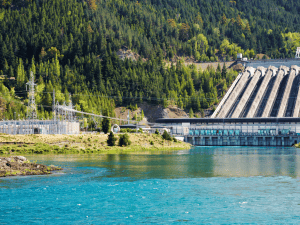Record-breaking heat waves are wreaking havoc across the world, causing widespread impact and raising concerns about the effects of climate change.
Global Heat Waves
Initial data from the World Meteorological Organization (WMO) highlights that there have been unparalleled worldwide heatwaves in recent periods. The period between July 3rd and 9th marked the hottest week ever recorded, closely following the hottest June on record. This disturbing trend is substantiated by the fact that absolute temperature records are consistently being shattered worldwide.
Regional Records
Numerous regions have experienced extreme heat waves, resulting in alarming temperature records. In South Asia, an exceptional heatwave during April and May 2023 led to broken national temperature records in countries like Thailand (45.4°C), Vietnam (44.2°C), and Laos (43.5°C).
Similarly, Australia and Uruguay matched their national temperature records, with Onslow reaching 50.7°C and Florida hitting 44.0°C. The UK also joined the list with temperatures surpassing 40°C in July 2022.
Current Heat Waves and Records
Lately, the world has been struggling with an unparalleled surge of heatwaves and wildfires that have broken previous records. Cities like Kelowna in British Columbia and Yellowknife in the Northwest Territories of Canada have been severely impacted by powerful wildfires. These events have showcased the different challenges each city faces in dealing with the fires.
In the US, regions like Hawaii have also experienced their share of extreme heat, further highlighting the global nature of this crisis. In Canada, the summer of 2023 has been particularly alarming due to the severity of the wildfires and the pervasive smoke caused by these fires.
Canada’s relentless battle against the record-breaking heat and devastating wildfires has garnered significant attention. These occurrences have resulted in significant outcomes, impacting agriculture, the availability of water, and the entire ecosystem.
The Northwest Territories and British Columbia have seen a staggering number of fires burning, prompting discussions about the influence of human-induced climate change on the frequency and intensity of these fires. The record-breaking heatwaves and prolonged droughts create favorable conditions for fires to spread rapidly, causing destruction and displacing communities.
Past Heat Waves and Records
The history of record heat waves is punctuated by significant events. During the summer of 2021, Canada, Turkey, Spain, and Italy experienced their highest temperatures on record. Notably, Syracuse in Italy reported a potential European record of 48.8°C. Antarctica has also encountered impacts, as temperatures surpassed 18°C at the Esperanza base in the southern summer of 2020. Europe experienced notable records during the 2019 heatwave, including Belgium (41.8°C) and Germany (41.2°C). In 2017, Pakistan (53.7°C) and Kuwait (53.9°C) recorded some of the highest temperatures on record.

Impact on Society
The impacts of these heat waves extend beyond property damage. Negative health effects, including heat-related illnesses and respiratory issues due to increased air pollution from wildfires, have become more prevalent. Groups that are more susceptible, such as older individuals, youngsters, and those with existing medical issues, face a higher level of risk.
The extreme weather changes, including the heat waves and wildfires, are largely attributed to climate change. Rising global temperatures, driven by greenhouse gas emissions from human activities, contribute to the intensification of heat waves and the increased likelihood of wildfires. The phenomenon of “fire weather” is becoming more frequent due to these climate changes, resulting in drier conditions and higher fire risks.
Burning fossil fuels results in the emission of greenhouse gases, such as carbon dioxide, into the air. This action traps heat within the atmosphere and ultimately causes the phenomenon of global warming. This warming disrupts weather patterns, creating conditions conducive to extreme events like heatwaves and wildfires. Scientific consensus highlights the link between human activities and the intensification of such phenomena, underscoring the urgent need to transition to cleaner energy sources and mitigate further climate impacts.
Renewable Energy and Heat Waves
In order to address the increasingly dire climate emergency, an immediate shift to sustainable energy sources is imperative. Emphasizing renewable energy, such as solar, wind, energy storage and hydroelectric power, is crucial to reducing greenhouse gas emissions and mitigating the factors contributing to extreme weather events. Investing in renewable energy infrastructure and policies can not only help curb climate change but also create a more sustainable future.
Solar energy production tends to increase during heatwaves due to heightened sunlight exposure. Similarly, wind energy benefits from stronger wind currents created by temperature gradients. Leveraging these renewable sources becomes crucial for a sustainable future.
Conclusion
Unprecedented heatwaves serve as a clear indication of the pressing requirement to tackle the issue of climate change. The global trend of increasing temperatures and extreme heat waves underscores the importance of transitioning to renewable energy sources and implementing measures to mitigate the effects of climate change. The insights provided in this post shed light on the alarming situation and the steps that need to be taken for a more sustainable future.






